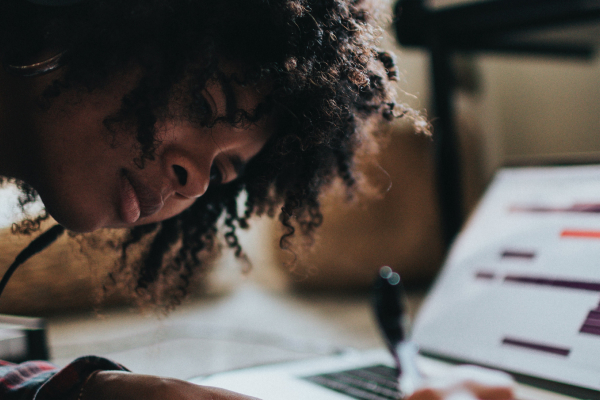Is iCloud Safe in 2022?
Table of contents
- What are the security features of iCloud
- Is iCloud email safe?
- Are iCloud Photos and files secure?
- Is iCloud backup safe?
- Who can access my iCloud?
- Can iCloud be hacked?
- Incidents of iCloud security breaches
- Do I really need iCloud?
- Turning off sync for iCloud
- How to improve the security of your iCloud
If you’re an Apple product user, then chances are you’re probably familiar with the iCloud. This service provides free extra storage and syncs files such as photos from different Apple devices into one handy, cloud-based location.
Since these are stored on the cloud, you can access them from anywhere, even without your devices. However, as with any other system, it is not completely invulnerable to attacks. Contrary to popular belief, Macs do get viruses and no one is immune to attacks.
No computer can be fully secure from digital threats.
But Clario is here to help. It's a completely new way to simplify your online security that goes beyond anti-malware. It's a unique fusion of protection software and human intelligence on demand, 24/7. Download Clario and make sure your devices are safe.
In this post, we’ll answer the internet’s most frequently asked questions about your Apple devices, including the most important one - is iCloud really safe?
What are the security features of iCloud
Your photos, emails, and other files are more secure on the iCloud, thanks to these features:
- Two-Factor Authentication (2FA) - With this feature, you need to provide your password and a six-digit verification code only available on trusted devices.
- Security tokens - Built-in apps like Mail, Contacts, Calendar are authenticated using secure tokens. With this, you no longer need to store your iCloud password on verified devices.
- Encryption - This means the information you send online will be kept hidden or private. This includes personal data such as Wi-Fi passwords, payment information, and search history.
Is iCloud email safe?
The Apple support page explains how when information is transmitted between your email and iCloud, this is encrypted with TLS (Transport Layer Security) 1.2. What does this mean? Simply said, a cryptographic protocol is used to heighten security over computer networks.
It also says how “iCloud does not encrypt data stored on Internet Message Access ProtocolInternet Message Access Protocol (IMAP) mail servers”. This is because all Apple email clients support optional Secure/Multipurpose Internet Mail Extensions encryption.
To understand this statement, we must first clarify what IMAP does. Basically, it allows you to access your email when you are online. When you access your email using IMAP, you’re not downloading your email on your device but reading it using a server.
So while your traffic or the date you send is encrypted, the data stored on the IMAP while you’re accessing your email may not be encrypted. This is also why some Apple users still use an encryption software for Mac.
Are iCloud Photos and files secure?
When you turn on your iCloud Photos, your camera roll will be replaced with the All Photos album, organized by date.
“Will I lose my photos if I turn off iCloud?” is a common question among iCloud Photos users. The answer is no. It will not remove existing photos from iCloud but they may be deleted from the device, depending on your settings.
However, new photos will not be stored in your iCloud. This means you may not have a backup for your future photos.
Is iCloud backup safe?
Whatever happens on your Apple device, stays on your Apple device? This may not be the case for iCloud backups.
Though there is end-to-end encryption for your messages, once data is uploaded to be backed up, Apple can access it. This is because the company holds a key to unlock the door to your backup files.
In the past, when the US government asked the company to provide certain people's backups during a terrorism investigation, Apple faced the moral dilemma of whether or not to comply with these requests. And until now, there are still ongoing debates concerning an individual’s right to privacy vs. state security.
Who can access my iCloud?
Do you know who can access your iCloud? Here’s how you can find out:
- Any synced Apple devices - If you’re an Apple device lover, then you may have a Mac, an iPhone, and maybe even an iPad. If you have opted to sync all your devices to iCloud, then anyone who has access to any of them can quickly take a look at all your files. Be sure to turn off the sync for a specific device when you no longer use it or plan to sell it. You can quickly look at your iCloud’s Account Settings to see which devices have access to your iCloud.
- Anyone who has your Apple ID and password - If your devices are secure but someone has guessed or hacked your password, then your files and private data are still compromised.
- Apple itself - Though your files are encrypted, Apple has the key to unlock your iCloud backup files. There have been cases in the past when they have turned over these files to the US government but only during important investigations involving public safety.
Can iCloud be hacked?
Yes, iCloud can be hacked. Though Apple products are known to be very secure, there have been instances of iCloud data breaches impacting millions of users.
Incidents of iCloud security breaches
Over the years, there have been reports of cybercriminals taking advantage of iCloud’s vulnerabilities. Some of the most high-profile cases include:
- iCloud Phone Scam - In 2019, iPhone users started receiving calls and messages, telling them their iCloud had been hacked. They received spoofed messages asking for Apple IDs and passwords.
- Celebgate - Back in 2014, private photos of celebrities were leaked and this was traced back to an iCloud data breach. This was done by hackers who exploited the “Find my iPhone” feature to help them crack celebrity passwords and usernames.
- iCloud Hack in China - In 2018, iCloud customers in China fell victim to phishing scams. These hacks enabled criminals to swipe funds from users' linked WeChat and AliPay accounts.
Do I really need iCloud?
Though all Apple users are granted free storage, they can still opt out of syncing their files for security purposes or other personal reasons. We listed the advantages and disadvantages of using iCloud in this table:
Pros | Cons |
|---|---|
| All files such as photos or documents have a backup copy in case the device gets stolen or broken. | Anyone who has access to any of the devices connected to your iCloud can also look at all the files of other devices in the network. |
| You can access your files anywhere, even without your device. | You have to pay more if you want more storage. |
| You can track your device’s location. | Though you can access iCloud using other operating systems, they simply work better using Apple’s own operating system. |
| Easy sync function for all connected devices. |
Turning off sync for iCloud
If you have decided you just want to turn off the sync function for your iPhone, here are the steps you must follow:
Turning off sync on your iPhone, iPad, or iPod touch
Follow these steps if you're using iOS 10.3 or a more recent version:
- Go to Settings, then click on your name.
- Tap on iCloud.
- Simply switch the iCloud features to Off. You may choose which apps can still be synced or not by clicking on each individual app.
Turning off sync on your Mac
You can also turn off the iCloud sync using your Mac laptop. Here are the steps:
- Go to the Apple menu and select System Preferences.
- Click Apple ID. If you’re using macOS Mojave or earlier, you don’t need to click Apple ID.
- Click iCloud and click or unclick the apps you want to be synced with iCloud.
How to improve the security of your iCloud
Apple’s iCloud may have advanced security features but there are still ways for hackers to access your files. Sadly, human error comes into play. Avoid being hacked by following these steps:
- Don’t share your password with just anyone. Make sure whoever has access to your iCloud, devices, and password are people you trust with your life. Where you store your password is important too. If you have it written down somewhere in a location anyone may see, then you’re still in trouble.
- Create strong passwords. If your password can easily be guessed (123456 or your the numbers of the date, month and year of your birthday!) then you might as well be showing your personal files to the world. Make it a habit to create strong passwords or use a password manager.
- Always connect to secure networks. There are malicious public networks capable of stealing your personal information and this includes by accessing your iCloud. Be wary when connecting to a public Wi-Fi and make sure you read all the terms and conditions.
- Always update your operating system. Never ignore your device when it says it needs to be updated. The latest update of your OS contains fixes to give you the extra protection you need.
- Stay up-to-date with the latest security news. When you know what you’re up against, the better your chances of staying safe. Subscribe to trustworthy cybersecurity news and get your regular updates on the latest technologies and data breaches delivered to you.
- Get a cybersecurity software capable of working around the clock. With cybercriminals getting more and more creative about hacking you, you now need something stronger than just anti-virus. You require a cybersecurity app able to familiarize itself with you and your lifestyle and needs such as Clario!
Read more:


